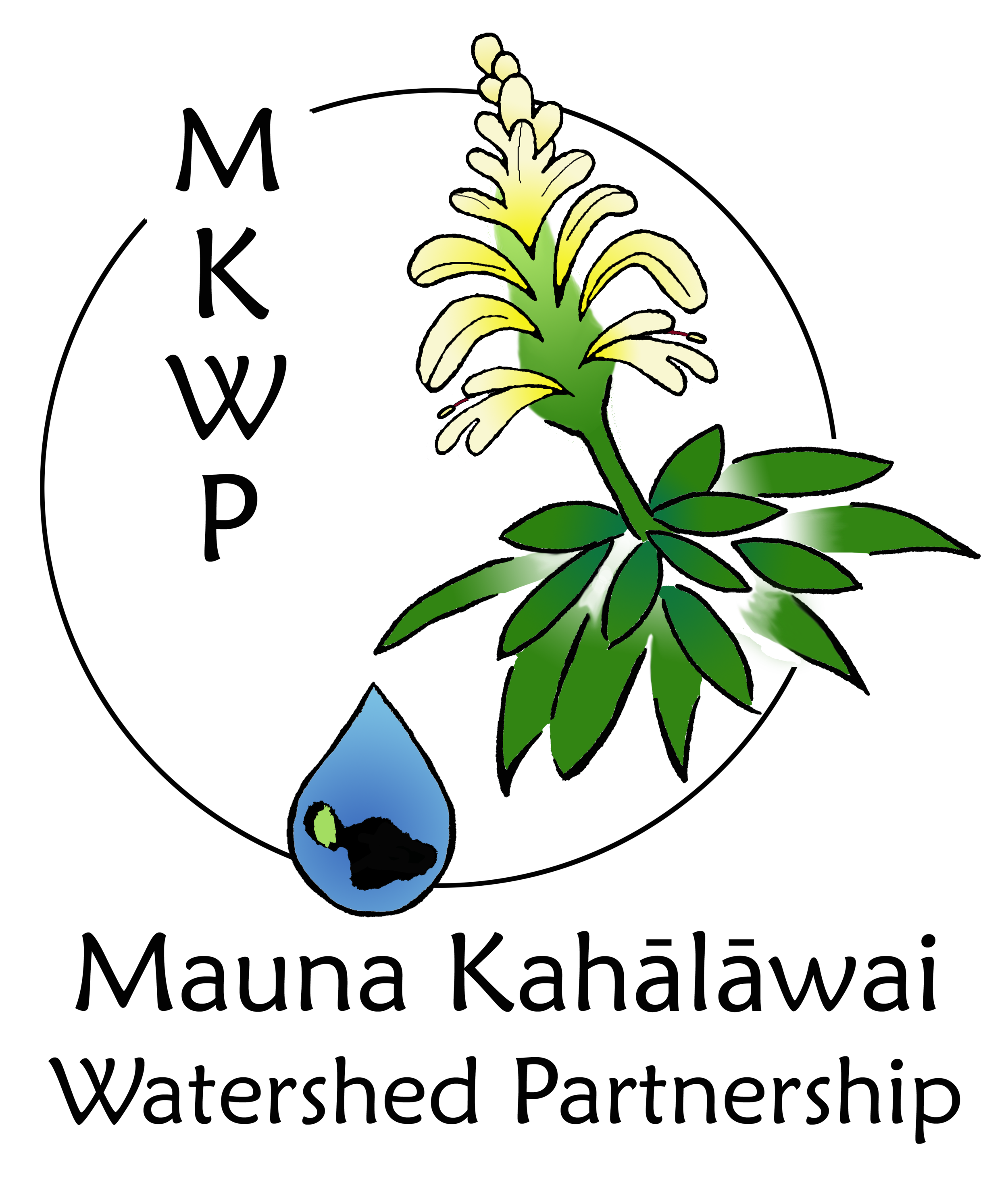Our Impact
47,321 acres of Partnership lands under management
25.2 miles of fence constructed
31,926 acres of land protected behind fences
23,310 acres of critical habitat for endangered species protected
126 species of rare plants, animals and communities protected
103.87 miles of perennial streams protected
The estimated value of services a native Hawaiian Watershed loses unless protected*: $7,400,000,000 to $14,000,000,000
* "Environmental Evaluation and the Hawaiian Economy" prepared by the University of Hawai'i Economic Research Organization. All costs are estimated as net present value using 3% and 1% social discount rates for the ranges. Exerted from "Last Stand - The Vanishing Hawaiian Forest" prepared by The Nature Conservancy, Hawai'i. For a free copy, contact TNC.
MKWP is a non-profit Partner of 1% for the Planet!
MKWP and our non-profit, Malama Kahālāwai, Inc., was accepted to the 1% for the Planet network of over 2,900 nonprofit organizations doing great work to help the planet. This is a global network of for-profit companies that have committed to donating 1% of their proceeds to deserving non-profit organizations within the network. 1% for the Planet is enabling businesses to take a lead role in being environmental stewards and to set an example for the rest of the business community. These companies embrace the notion that the sustainability of the natural environment is fundamental to the sustainability of business.
Malama Kahalawai, Inc. can accept tax deductible donations on behalf of MKWP as a part of this program, and the business can get credit for this donation, not only through their tax credit, but through their membership in the 1% for the Planet network.
2010 Conservation Innovation Award
MKWP, along with the other Watershed Partnerships in the state, was awarded the 2010 Conservation Innovation Award by the Hawaii Conservation Alliance at the annual Hawaii Conservation Conference.
The award was given to "the instigators or champions or a procedure that leads to significant advances to the structure or nature of environmental conservation in Hawaii."
Our watershed coordinator, Chris Brosius, accepted the award on our behalf, along with a beautiful native plant on our behalf. We are very honored to be recognized and we continue to look for new ways to further our efforts to protect our forested watersheds!
Your Impact
Recreate responsibility
Love it? Leave it alone. Leave no trace. Like that precious, irreplaceable koa surfboard that was passed down to you by your great grandfather, there are some things in this world worth cherishing from afar.
Extremely delicate ecosystems (like Eke Crater) are like family heirlooms. They take a long, long time to become what they are today, and no amount of money can purchase or recreate them once they are damaged or destroyed. In these places, one footstep can create an irrevocable impression.
You can protect your island's natural heritage by respecting the "No Trespassing" signs posted at watershed management areas.
To control runoff and erosion
Use more plants and less pavement
Divert runoff from pavement and roof drains onto grass or other vegetation
Don't over water. Use drip irrigation
To minimize nutrient build-up
Use less fertilizer. Choose slow-release fertilizer and apply it conservatively
Use phosphate-free biodegradable soaps and detergents
Use the bathrooms on shore before going out in a boat. Boaters use the sewage pump out station at the local harbor, or discharge marine sanitation devices in deep water.
To control bacteria and viruses
Never put grease down the drain. It's the #1 cause of raw sewage spills.
Pick up animal feces and put in trash or toilet.
Keep garbage dumpsters covered.
To control toxic chemicals
Tolerate more bugs and use fewer pesticides. Use, store, and dispose of pesticides. according to instructions on the label.
Recycle used motor oil and car batteries.
Learn about safe alternatives to household hazardous chemicals.
To reduce marine debris
Recycle glass, plastic, cardboard, aluminum cans, and tires.
Buy products made from recycled materials.
Select products with minimal packaging and reusable containers.
To conserve water and energy
Repair leaks and install water-saving showerheads and toilet flappers.
Learn about xeriscaping (landscaping to conserve water use).
Turn off the faucet when washing dishes or brushing your teeth.
Only water your lawn after sundown, when the water will be less likely to evaporate.
To preserve the reef
Use permanent day-use moorings where available. Otherwise, anchor in sand or rubble.
Don't feed the fish.
Do your best to avoid touching or walking on coral.
To take action:
Adopt and clean up a beach, reef, or stream.
Teach awareness to children and friends.
Volunteer to monitor beaches and coastal waters.





